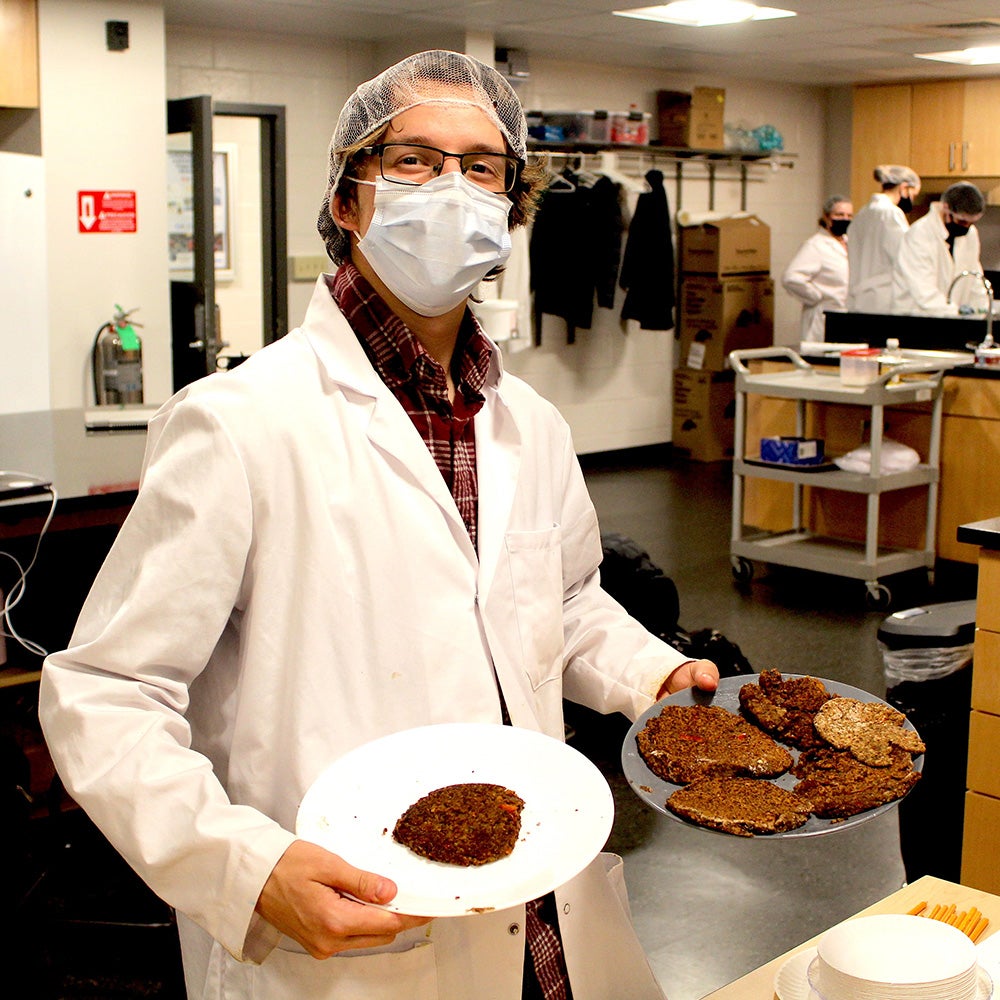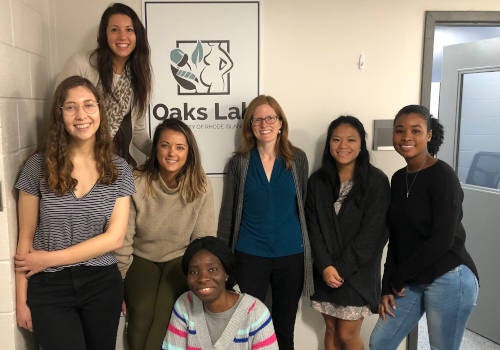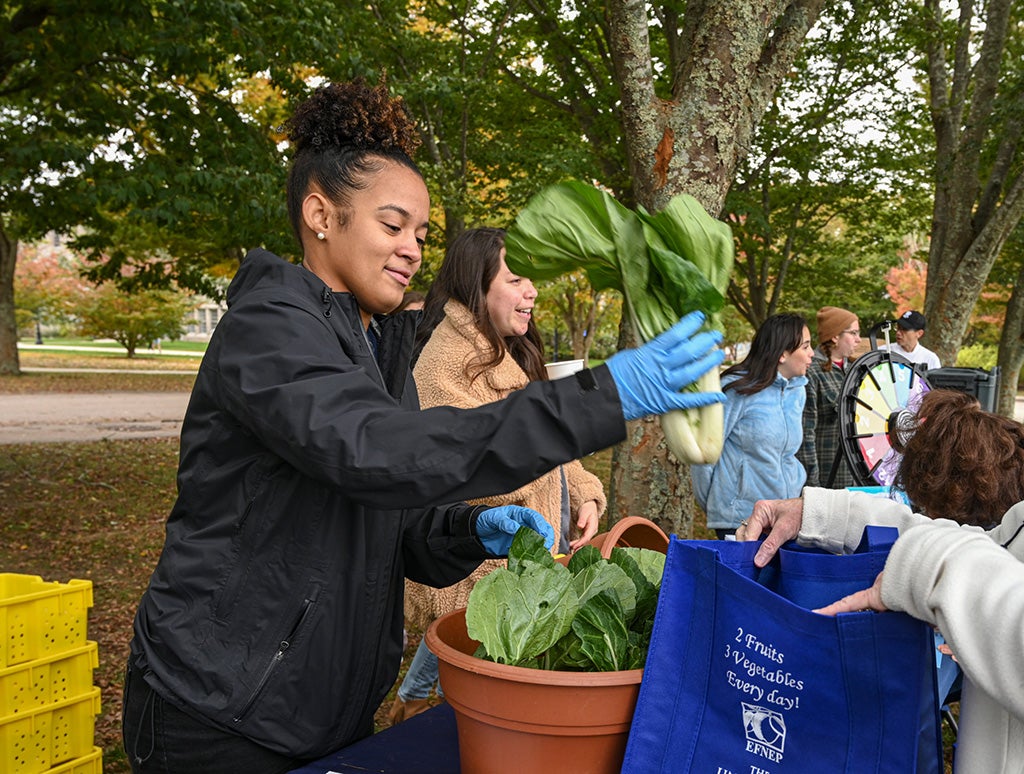The study of nutrition is critical to personal and public health because the food we eat affects our quality of life – our minds, bodies, and overall health. There has never been a better time to study nutrition to take an active role in improving people’s lives. URI offers a range of programs – whether you want to become a Registered Dietitian Nutritionist (RDN), build a foundation for advanced study, find a career in public health, or further your RDN credentials.
Why Nutrition at URI?

Variety of Programs
The faculty and staff of the Department of Nutrition are all working to provide teaching, research, and outreach to the University, the State of Rhode Island, and the community at large. The mission of the Nutrition and Dietetics programs is to provide evidence-based knowledge and experiential opportunities to prepare students for supervised practice leading to eligibility for the CDR credentialing exam to become a Registered Dietitian Nutritionist or to pursue pre-health professional degrees, graduate studies, and careers in public health, government, or the community.
Our teaching programs include a Bachelor of Science (B.S.) degree in Nutrition, a Bachelor of Science (B.S.) degree in Dietetics, an Accelerated Bachelor to Master 4+1 (B.S./M.S. 4+1) degree in either Nutrition or Dietetics, a Master of Science (M.S.) degree in Nutrition, an online Master of Science (M.S.) degree in Dietetics, and a Doctor of Philosophy (Ph.D.) in Health Sciences with an emphasis on Nutrition.
View PROGRAMS
Research Experience
Undergraduate and graduate students will have the opportunity to work alongside faculty to conduct innovative research in fields such as lipid metabolism, eating behavior, energy balance, nutrition and pregnancy, big data and eating decisions, outreach education and nutrition communications, and nutrition and physical activity promotion. Students have the opportunity to apply for research, teaching and outreach opportunities in the department to gain valuable experience in the field.
Learn MORE
Outreach & Experiential Education
Our work goes far outside of the classroom by connecting to the local community through programs such as Supplemental Nutrition Assistance Program Education (SNAP-Ed), the Expanded Food and Nutrition Education Program (EFNEP), and Food Recovery for Rhode Island. Along with these programs, there are many other opportunities, such as URI Free Farmers’ Market for experiential learning that students can participate in while receiving credits towards their degree.
LEARN MORE

Student Spotlight
Evelyn Mensah – Evelyn Mensah is a PhD Health Sciences student in the Nutrition Department and the May 2025 Graduate Student Spotlight.
LEARN MORESupport the Nutrition Department
Contributions made in support of the Department of Nutrition will help advance our mission of training and preparing students in human nutrition for numerous health-related careers. Our aim is to prevent chronic diseases by promoting healthy eating habits grounded in evidence-based, peer-reviewed science.
Donate Here to Support Future Nutrition and Dietetics Professionals!

